Why Is the Possibility of Revising Iran’s Nuclear Doctrine Raised
Strategic Council Online – Note: Iran has done more than its share for the nuclear non-proliferation regime.
Strategic Council Online – Note: Iran has done more than its share for the nuclear non-proliferation regime.
Strategic Council Online: The President of the Strategic Council on Foreign Relations stated: “The US State Department spokesperson, after my interview with Al Jazeera, reiterated their past remarks, stating that they won’t allow Iran to build nuclear weapons, but ultimately said diplomacy is the best approach. Yes, we too prefer diplomacy since based on the Fatwa of our Supreme Leader are not for nuclear weapons; rather, we are advocates of diplomacy to make the Middle East a nuclear-free region. But, in case the Israeli regime threatens us with nuclear weapons, we surely cannot sit idle and wait for permission from others.”
Strategic Council Online – Opinion: The strategic Strait of Bab al-Mandab and the Red Sea have recently faced serious problems and crises due to the Gaza war. This is because of the protectionist approach of the Yemeni army forces toward Palestine, which, since the beginning of the Israeli regime’s attacks on the Gaza Strip, has included attacks on ships bound for or from the origin of the regime in the Red Sea.
They said they will continue their attacks until the Israeli regime’s military aggression in the Gaza Strip ends. The United States, as the most important supporter of the Israeli regime, was the first country to respond to this policy of Yemeni army forces and tried to form a global coalition to counter these attacks under the cover of supporting freedom of navigation, which, of course, failed because of conflicts of interests of Western countries and ended in the actions of the US and British attacks on positions in Yemen. Of course, although European countries were not seriously involved in the American coalition, they have numerous and complex interests in this inflammatory, and as a result, have adopted a particular and independent approach.
Dr. Mohammad Mehdi Mazaheri – University Professor
Strategic Council Online – Interview: An expert on regional issues said Qatari authorities will definitely resist Western pressure to expel Hamas leaders from their territory, and probably the United States will not move towards a zero-hundred equation in this regard because if the Hamas leaders remain in Qatar, which is an ally of the United States, is better than moving to a country outside the power of the United States to exert pressure.
Strategic Council Online – Opinion: Student protests in America take on new dimensions every day.
Because the university enjoys higher public trust and social capital than other civil and social institutions and is, therefore, more effective, the current protests put the U.S. government in a “difficult situation” that is clear in the statements of current and former U.S. officials.
Hamid Khoshayand – International Affairs Expert
Strategic Council Online: The 3rd Iranian-Arab Dialogue Conference, titled “For Cooperation and Interaction,” will be inaugurated on April 23rd in Tehran, hosted by the Strategic Council on Foreign Relations.
Strategic Council Online – Interview: An expert on Caucasus issues said that Swedish Foreign Minister Tobias Billström recently announced that EU states plan to include the ban on the supply of liquefied natural gas (LNG) in the sanctions against Russia.
Strategic Council Online—Interview: An expert on strategic issues said: The US Navy has put a project on the agenda to convert surplus oil platforms into mobile missile defense bases in the Pacific Ocean and face China’s threats. These platforms are supposed to be deployed in response to China’s growing missile threats in the Pacific region. Platforms converted into missile defense bases are expected to play an important role in increasing US air defense capabilities and assisting in the country’s strike missions.

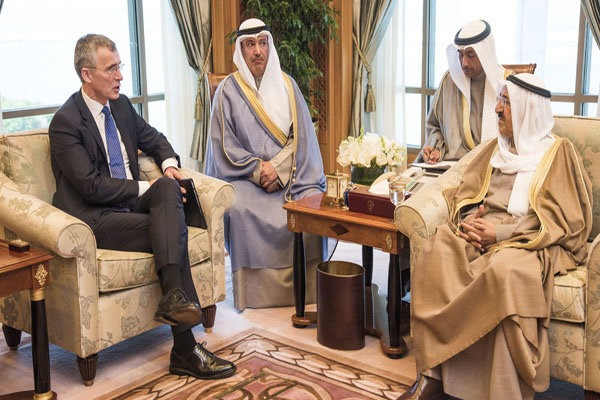
Strategic Council Online – An expert on geopolitical affairs commenting on NATO cooperation with Arab states, especially those in the Persian Gulf, said: Countries such as the UAE and Saudi Arabia since their independence had been under British tutelage and were totally dependent on that country and after Britain withdrew from east of the Suez Canal, the United States replaced it. In fact, the Arab states of the Persian Gulf think that by setting up their bases Western countries would provide them with security, but this is not the case, as we see today that Saudi Arabia is the target of the Yemeni missiles.
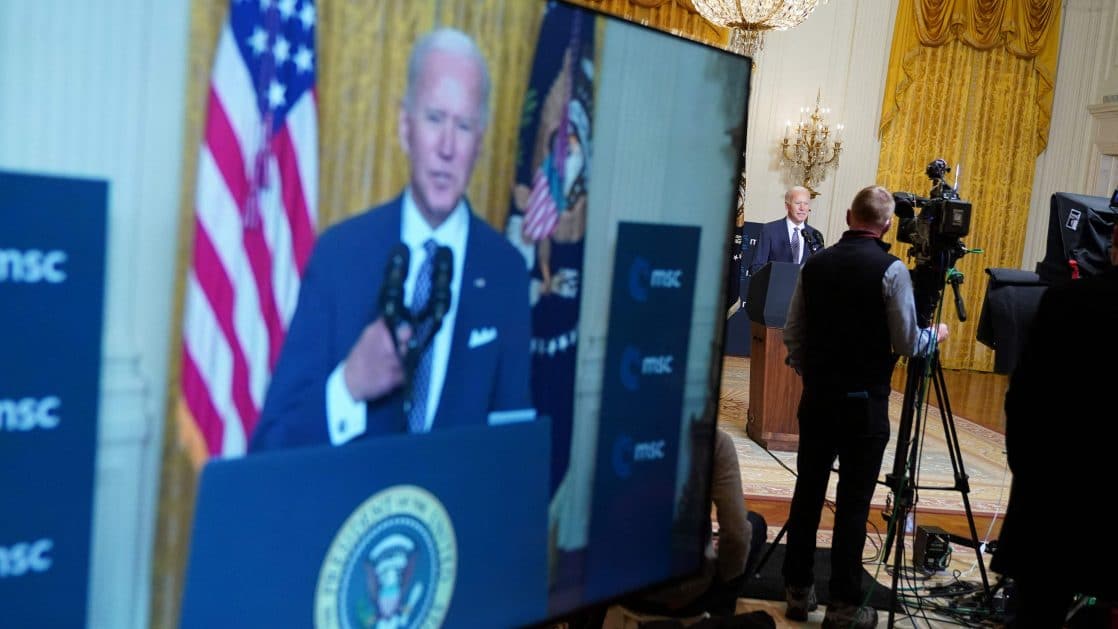
Strategic Council Online – In the nearly 60-year old history of the Munich Security Conference, which is held annually by the private sector on global security policy in the presence of international security and military politicians, this is the first time that a president of the United States has attended it, and for the first time since taking office, has addressed the European audience directly.
Mahmoud Fazeli – Analyst of international affairs

Strategic Council Online – An analyst of Saudi affairs said that Saudi Arabia and the United States are currently evaluating each other, adding: If Bin Salman cooperates with the United States in resolving the Yemen crisis, as such that Biden represents himself as the “savior of several nations,” Biden will also reduce his pressure in the field of Saudi domestic issues.
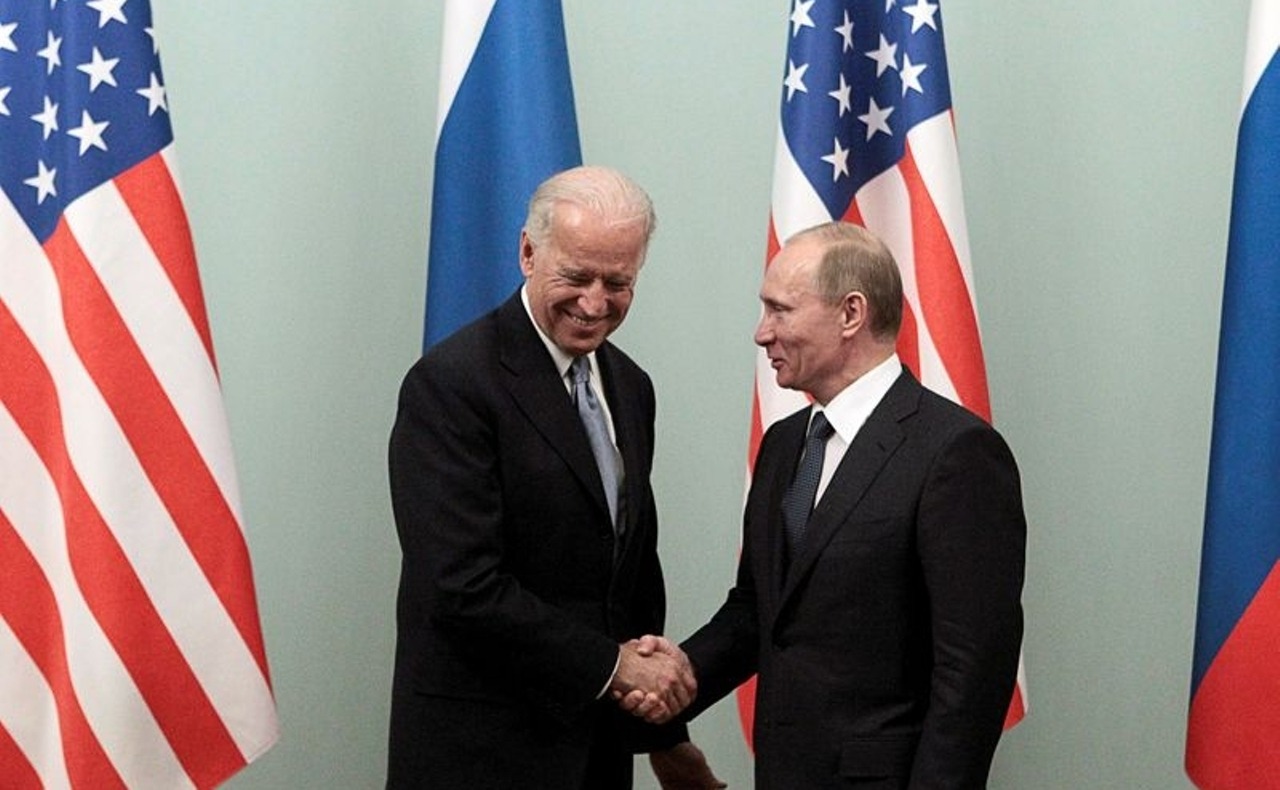
Strategic Council Online-Editorial: The interference of the White House in the domestic affairs of Russia during the past one month concerning the Alexi Navalny issue indicated that the Biden administration is profiting from the tools of democracy and human rights for its own interest in order to obtain maximal interests in the global order. And this is an issue which can cause more frictions in the relations between the United States and Russia as Russia believes that the West presents a two-direction and conflicting definition of concrete concepts such as freedom, human rights and democracy.
Dr. Ahmad Vakhishteh, professor of the International Relations Faculty of the National Eurasia University
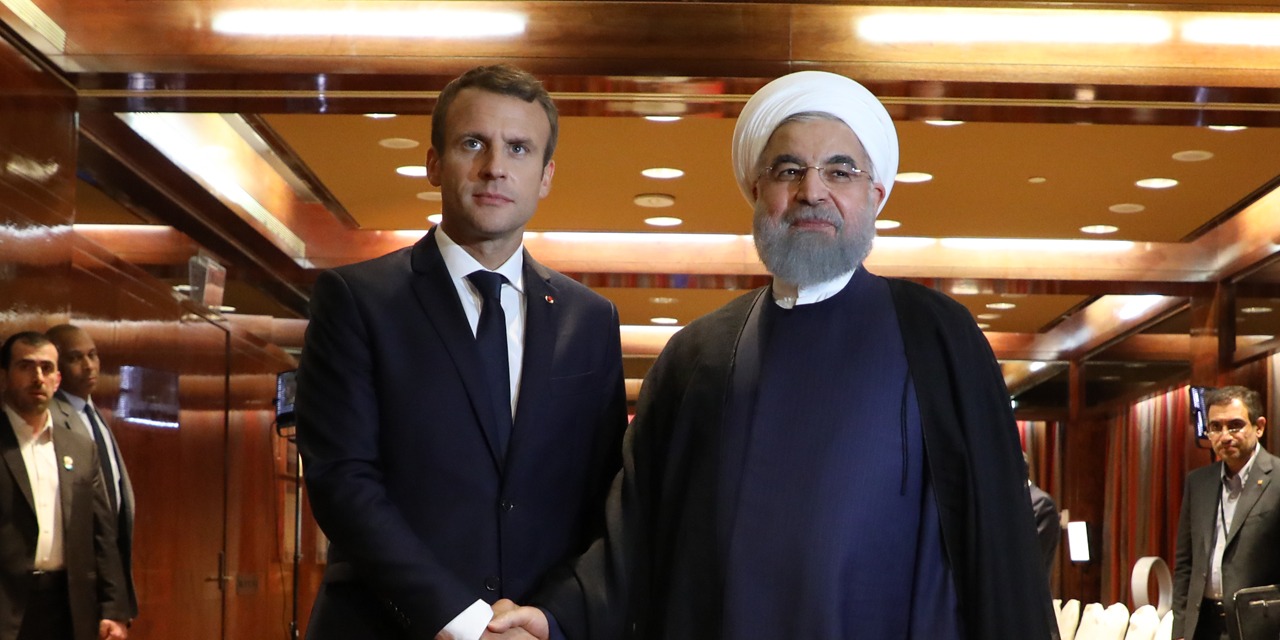
Strategic Council Online – An analyst of Europe affairs said: The EU will definitely work in the future to persuade the United States to return to the Joint Comprehensive Plan of Action (JCPOA) and by providing credit line, economic incentives and close engagement and cooperation with China and Russia as Iran’s allies will continue to encourage Tehran to stay in the JCPOA.
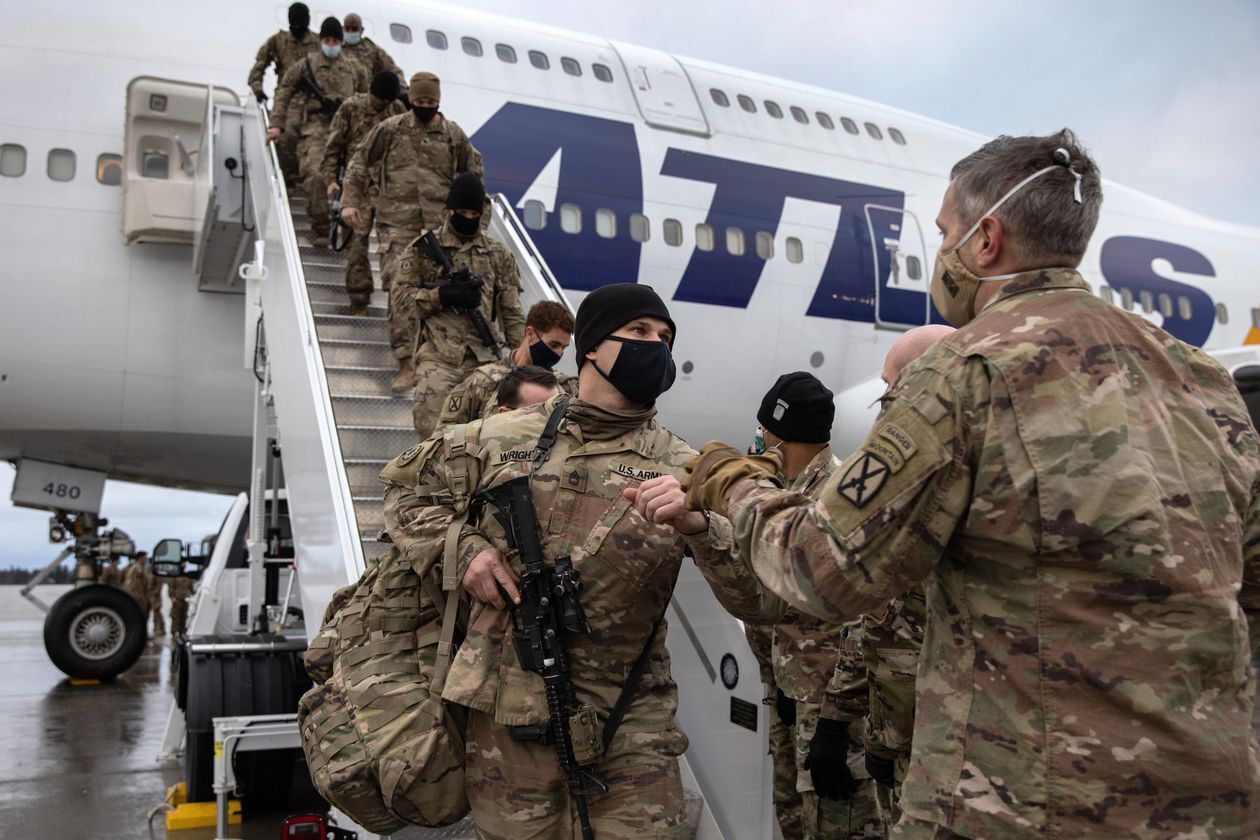
Strategic Council Online—Interview: An expert of Afghanistan affairs says it seems the Americans had reached an agreement with the Taliban to limit their military presence in Afghanistan, adding that the United States would prolong its military presence in Afghanistan not to lose it to its rivals like in Iraq.
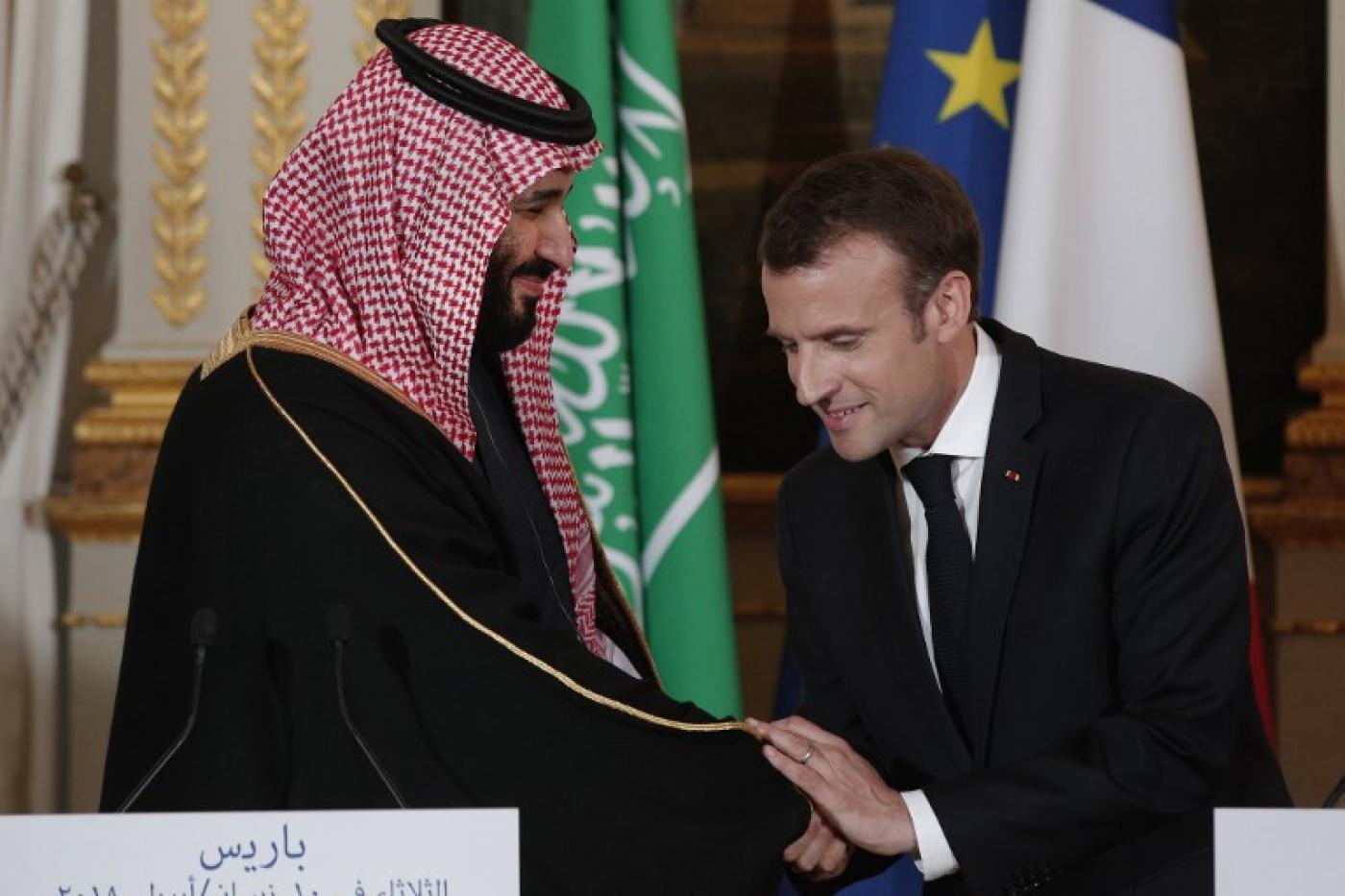
Strategic Council Online – An expert on the Middle East Affairs, referring to the recent policies of the French President, Emmanuel Macron to get closer to Saudi Arabia after Joe Biden took office, said France wants to fill the gap caused by the United States to reduce its strong presence in the Middle East.
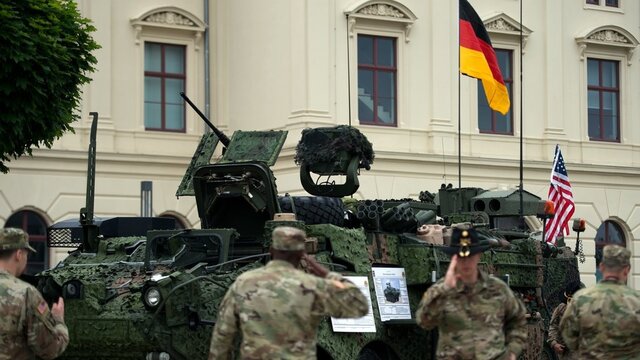
Strategic Council Online – In July 2020, former US Secretary of Defense Mark Esper presented a plan to reduce the number of US troops in Germany by 12,000. The majority of the troops, estimated at about 6,400, should return to the United States, while about 5,600 troops would remain in Europe, based in Belgium and Italy, and several thousand would travel on US-European rotation plans. The headquarters of the United States European Command (EUCOM), as well as the US Army Special Operations Command in Europe, will be moved from Stuttgart in Germany to Belgium. The plan reduced the number of US troops stationed in Germany from 36,000 to 24,000. Based on US claim, the measure would “strengthen NATO”, “deter Russia” and “reassure US allies”. Even some US analysts have called the move a “revenge” against Merkel.
Mahmoud Fazeli – Expert on International Affairs
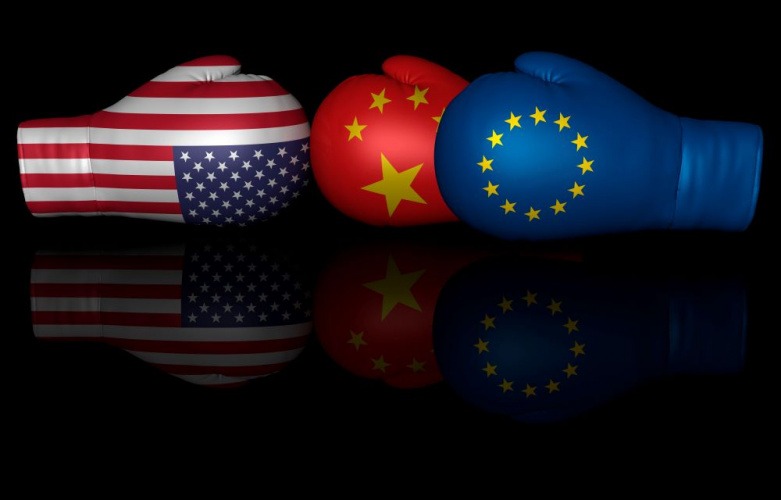
Strategic Council Online – Referring to the strategic dialogue between Chinese Foreign Minister Wang Yi and French President’s diplomatic adviser Emmanuel Boone, a European affairs expert stressed that the recent meeting of high-ranking Chinese and French officials is important because we are witnessing escalating tensions between China and the United States, and somehow there is a deep rift between European governments and the United States on how to deal with Beijing.
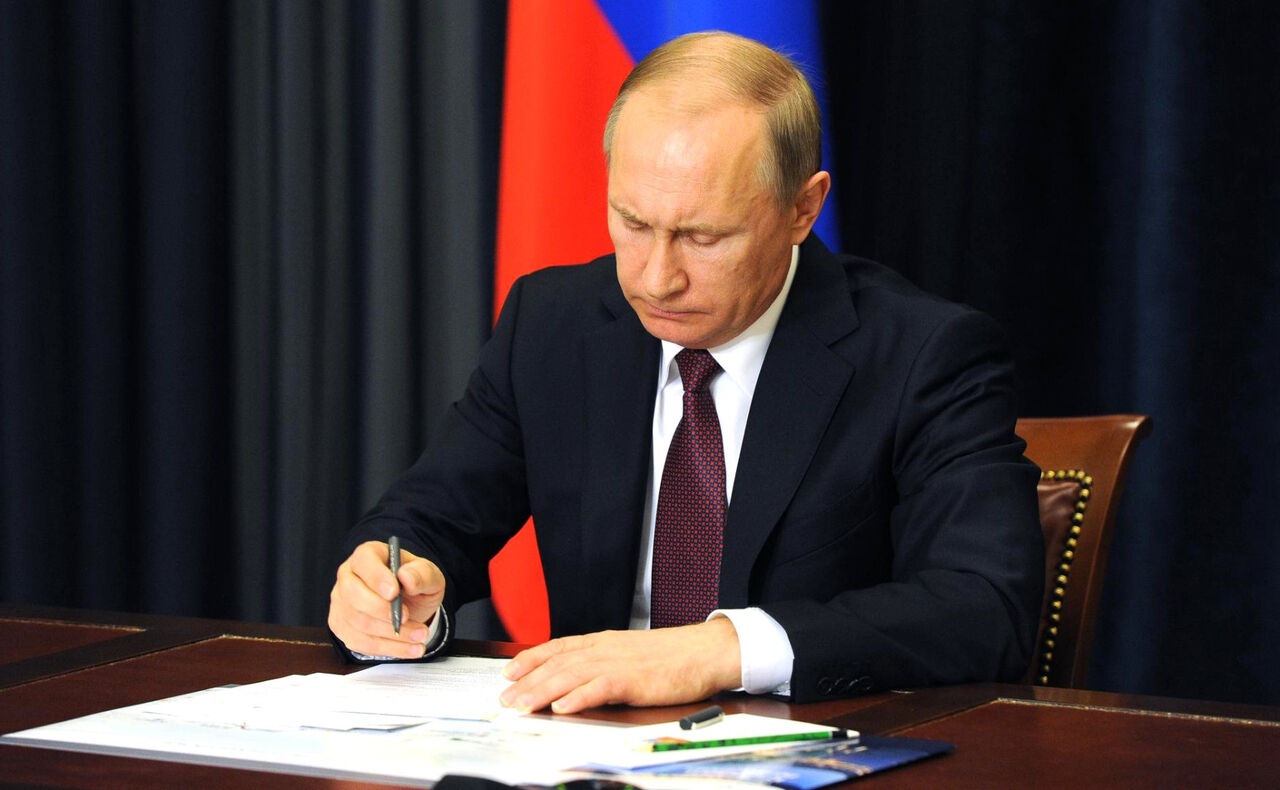
Strategic Council Online—Interview: An analyst of Russia affairs says renewing the new START treaty is significant in the sense it is still giving hope rivalry between nuclear powers would be impeded through dialogue and international agreement, saying that it seems the United States and Russia have reached the conclusion that despite their differences, they need to cooperate to resolve important issues.
Strategic Council Online – Note: Iran has done more than its share for the nuclear non-proliferation regime.
Strategic Council Online: The President of the Strategic Council on Foreign Relations stated: “The US State Department spokesperson, after my interview with Al Jazeera, reiterated their past remarks, stating that they won’t allow Iran to build nuclear weapons, but ultimately said diplomacy is the best approach. Yes, we too prefer diplomacy since based on the Fatwa of our Supreme Leader are not for nuclear weapons; rather, we are advocates of diplomacy to make the Middle East a nuclear-free region. But, in case the Israeli regime threatens us with nuclear weapons, we surely cannot sit idle and wait for permission from others.”
Strategic Council Online – Opinion: The strategic Strait of Bab al-Mandab and the Red Sea have recently faced serious problems and crises due to the Gaza war. This is because of the protectionist approach of the Yemeni army forces toward Palestine, which, since the beginning of the Israeli regime’s attacks on the Gaza Strip, has included attacks on ships bound for or from the origin of the regime in the Red Sea.
They said they will continue their attacks until the Israeli regime’s military aggression in the Gaza Strip ends. The United States, as the most important supporter of the Israeli regime, was the first country to respond to this policy of Yemeni army forces and tried to form a global coalition to counter these attacks under the cover of supporting freedom of navigation, which, of course, failed because of conflicts of interests of Western countries and ended in the actions of the US and British attacks on positions in Yemen. Of course, although European countries were not seriously involved in the American coalition, they have numerous and complex interests in this inflammatory, and as a result, have adopted a particular and independent approach.
Dr. Mohammad Mehdi Mazaheri – University Professor
Strategic Council Online – Interview: An expert on regional issues said Qatari authorities will definitely resist Western pressure to expel Hamas leaders from their territory, and probably the United States will not move towards a zero-hundred equation in this regard because if the Hamas leaders remain in Qatar, which is an ally of the United States, is better than moving to a country outside the power of the United States to exert pressure.
Strategic Council Online – Opinion: Student protests in America take on new dimensions every day.
Because the university enjoys higher public trust and social capital than other civil and social institutions and is, therefore, more effective, the current protests put the U.S. government in a “difficult situation” that is clear in the statements of current and former U.S. officials.
Hamid Khoshayand – International Affairs Expert
Strategic Council Online: The 3rd Iranian-Arab Dialogue Conference, titled “For Cooperation and Interaction,” will be inaugurated on April 23rd in Tehran, hosted by the Strategic Council on Foreign Relations.
Strategic Council Online – Interview: An expert on Caucasus issues said that Swedish Foreign Minister Tobias Billström recently announced that EU states plan to include the ban on the supply of liquefied natural gas (LNG) in the sanctions against Russia.
Strategic Council Online—Interview: An expert on strategic issues said: The US Navy has put a project on the agenda to convert surplus oil platforms into mobile missile defense bases in the Pacific Ocean and face China’s threats. These platforms are supposed to be deployed in response to China’s growing missile threats in the Pacific region. Platforms converted into missile defense bases are expected to play an important role in increasing US air defense capabilities and assisting in the country’s strike missions.


Strategic Council Online – An expert on geopolitical affairs commenting on NATO cooperation with Arab states, especially those in the Persian Gulf, said: Countries such as the UAE and Saudi Arabia since their independence had been under British tutelage and were totally dependent on that country and after Britain withdrew from east of the Suez Canal, the United States replaced it. In fact, the Arab states of the Persian Gulf think that by setting up their bases Western countries would provide them with security, but this is not the case, as we see today that Saudi Arabia is the target of the Yemeni missiles.

Strategic Council Online – In the nearly 60-year old history of the Munich Security Conference, which is held annually by the private sector on global security policy in the presence of international security and military politicians, this is the first time that a president of the United States has attended it, and for the first time since taking office, has addressed the European audience directly.
Mahmoud Fazeli – Analyst of international affairs

Strategic Council Online – An analyst of Saudi affairs said that Saudi Arabia and the United States are currently evaluating each other, adding: If Bin Salman cooperates with the United States in resolving the Yemen crisis, as such that Biden represents himself as the “savior of several nations,” Biden will also reduce his pressure in the field of Saudi domestic issues.

Strategic Council Online-Editorial: The interference of the White House in the domestic affairs of Russia during the past one month concerning the Alexi Navalny issue indicated that the Biden administration is profiting from the tools of democracy and human rights for its own interest in order to obtain maximal interests in the global order. And this is an issue which can cause more frictions in the relations between the United States and Russia as Russia believes that the West presents a two-direction and conflicting definition of concrete concepts such as freedom, human rights and democracy.
Dr. Ahmad Vakhishteh, professor of the International Relations Faculty of the National Eurasia University

Strategic Council Online – An analyst of Europe affairs said: The EU will definitely work in the future to persuade the United States to return to the Joint Comprehensive Plan of Action (JCPOA) and by providing credit line, economic incentives and close engagement and cooperation with China and Russia as Iran’s allies will continue to encourage Tehran to stay in the JCPOA.

Strategic Council Online—Interview: An expert of Afghanistan affairs says it seems the Americans had reached an agreement with the Taliban to limit their military presence in Afghanistan, adding that the United States would prolong its military presence in Afghanistan not to lose it to its rivals like in Iraq.

Strategic Council Online – An expert on the Middle East Affairs, referring to the recent policies of the French President, Emmanuel Macron to get closer to Saudi Arabia after Joe Biden took office, said France wants to fill the gap caused by the United States to reduce its strong presence in the Middle East.

Strategic Council Online – In July 2020, former US Secretary of Defense Mark Esper presented a plan to reduce the number of US troops in Germany by 12,000. The majority of the troops, estimated at about 6,400, should return to the United States, while about 5,600 troops would remain in Europe, based in Belgium and Italy, and several thousand would travel on US-European rotation plans. The headquarters of the United States European Command (EUCOM), as well as the US Army Special Operations Command in Europe, will be moved from Stuttgart in Germany to Belgium. The plan reduced the number of US troops stationed in Germany from 36,000 to 24,000. Based on US claim, the measure would “strengthen NATO”, “deter Russia” and “reassure US allies”. Even some US analysts have called the move a “revenge” against Merkel.
Mahmoud Fazeli – Expert on International Affairs

Strategic Council Online – Referring to the strategic dialogue between Chinese Foreign Minister Wang Yi and French President’s diplomatic adviser Emmanuel Boone, a European affairs expert stressed that the recent meeting of high-ranking Chinese and French officials is important because we are witnessing escalating tensions between China and the United States, and somehow there is a deep rift between European governments and the United States on how to deal with Beijing.

Strategic Council Online—Interview: An analyst of Russia affairs says renewing the new START treaty is significant in the sense it is still giving hope rivalry between nuclear powers would be impeded through dialogue and international agreement, saying that it seems the United States and Russia have reached the conclusion that despite their differences, they need to cooperate to resolve important issues.

Strategic Council Online – An expert on geopolitical affairs commenting on NATO cooperation with Arab states, especially those in the Persian Gulf, said: Countries such as the UAE and Saudi Arabia since their independence had been under British tutelage and were totally dependent on that country and after Britain withdrew from east of the Suez Canal, the United States replaced it. In fact, the Arab states of the Persian Gulf think that by setting up their bases Western countries would provide them with security, but this is not the case, as we see today that Saudi Arabia is the target of the Yemeni missiles.

Strategic Council Online – In the nearly 60-year old history of the Munich Security Conference, which is held annually by the private sector on global security policy in the presence of international security and military politicians, this is the first time that a president of the United States has attended it, and for the first time since taking office, has addressed the European audience directly.
Mahmoud Fazeli – Analyst of international affairs

Strategic Council Online – An analyst of Saudi affairs said that Saudi Arabia and the United States are currently evaluating each other, adding: If Bin Salman cooperates with the United States in resolving the Yemen crisis, as such that Biden represents himself as the “savior of several nations,” Biden will also reduce his pressure in the field of Saudi domestic issues.

Strategic Council Online-Editorial: The interference of the White House in the domestic affairs of Russia during the past one month concerning the Alexi Navalny issue indicated that the Biden administration is profiting from the tools of democracy and human rights for its own interest in order to obtain maximal interests in the global order. And this is an issue which can cause more frictions in the relations between the United States and Russia as Russia believes that the West presents a two-direction and conflicting definition of concrete concepts such as freedom, human rights and democracy.
Dr. Ahmad Vakhishteh, professor of the International Relations Faculty of the National Eurasia University

Strategic Council Online – An analyst of Europe affairs said: The EU will definitely work in the future to persuade the United States to return to the Joint Comprehensive Plan of Action (JCPOA) and by providing credit line, economic incentives and close engagement and cooperation with China and Russia as Iran’s allies will continue to encourage Tehran to stay in the JCPOA.

Strategic Council Online—Interview: An expert of Afghanistan affairs says it seems the Americans had reached an agreement with the Taliban to limit their military presence in Afghanistan, adding that the United States would prolong its military presence in Afghanistan not to lose it to its rivals like in Iraq.

Strategic Council Online – An expert on the Middle East Affairs, referring to the recent policies of the French President, Emmanuel Macron to get closer to Saudi Arabia after Joe Biden took office, said France wants to fill the gap caused by the United States to reduce its strong presence in the Middle East.

Strategic Council Online – In July 2020, former US Secretary of Defense Mark Esper presented a plan to reduce the number of US troops in Germany by 12,000. The majority of the troops, estimated at about 6,400, should return to the United States, while about 5,600 troops would remain in Europe, based in Belgium and Italy, and several thousand would travel on US-European rotation plans. The headquarters of the United States European Command (EUCOM), as well as the US Army Special Operations Command in Europe, will be moved from Stuttgart in Germany to Belgium. The plan reduced the number of US troops stationed in Germany from 36,000 to 24,000. Based on US claim, the measure would “strengthen NATO”, “deter Russia” and “reassure US allies”. Even some US analysts have called the move a “revenge” against Merkel.
Mahmoud Fazeli – Expert on International Affairs

Strategic Council Online – Referring to the strategic dialogue between Chinese Foreign Minister Wang Yi and French President’s diplomatic adviser Emmanuel Boone, a European affairs expert stressed that the recent meeting of high-ranking Chinese and French officials is important because we are witnessing escalating tensions between China and the United States, and somehow there is a deep rift between European governments and the United States on how to deal with Beijing.

Strategic Council Online—Interview: An analyst of Russia affairs says renewing the new START treaty is significant in the sense it is still giving hope rivalry between nuclear powers would be impeded through dialogue and international agreement, saying that it seems the United States and Russia have reached the conclusion that despite their differences, they need to cooperate to resolve important issues.
Strategic Council Online – Note: Iran has done more than its share for the nuclear non-proliferation regime.
Strategic Council Online: The President of the Strategic Council on Foreign Relations stated: “The US State Department spokesperson, after my interview with Al Jazeera, reiterated their past remarks, stating that they won’t allow Iran to build nuclear weapons, but ultimately said diplomacy is the best approach. Yes, we too prefer diplomacy since based on the Fatwa of our Supreme Leader are not for nuclear weapons; rather, we are advocates of diplomacy to make the Middle East a nuclear-free region. But, in case the Israeli regime threatens us with nuclear weapons, we surely cannot sit idle and wait for permission from others.”
Strategic Council Online – Opinion: The strategic Strait of Bab al-Mandab and the Red Sea have recently faced serious problems and crises due to the Gaza war. This is because of the protectionist approach of the Yemeni army forces toward Palestine, which, since the beginning of the Israeli regime’s attacks on the Gaza Strip, has included attacks on ships bound for or from the origin of the regime in the Red Sea.
They said they will continue their attacks until the Israeli regime’s military aggression in the Gaza Strip ends. The United States, as the most important supporter of the Israeli regime, was the first country to respond to this policy of Yemeni army forces and tried to form a global coalition to counter these attacks under the cover of supporting freedom of navigation, which, of course, failed because of conflicts of interests of Western countries and ended in the actions of the US and British attacks on positions in Yemen. Of course, although European countries were not seriously involved in the American coalition, they have numerous and complex interests in this inflammatory, and as a result, have adopted a particular and independent approach.
Dr. Mohammad Mehdi Mazaheri – University Professor
Strategic Council Online – Interview: An expert on regional issues said Qatari authorities will definitely resist Western pressure to expel Hamas leaders from their territory, and probably the United States will not move towards a zero-hundred equation in this regard because if the Hamas leaders remain in Qatar, which is an ally of the United States, is better than moving to a country outside the power of the United States to exert pressure.
Strategic Council Online – Opinion: Student protests in America take on new dimensions every day.
Because the university enjoys higher public trust and social capital than other civil and social institutions and is, therefore, more effective, the current protests put the U.S. government in a “difficult situation” that is clear in the statements of current and former U.S. officials.
Hamid Khoshayand – International Affairs Expert
Strategic Council Online: The 3rd Iranian-Arab Dialogue Conference, titled “For Cooperation and Interaction,” will be inaugurated on April 23rd in Tehran, hosted by the Strategic Council on Foreign Relations.
Strategic Council Online – Interview: An expert on Caucasus issues said that Swedish Foreign Minister Tobias Billström recently announced that EU states plan to include the ban on the supply of liquefied natural gas (LNG) in the sanctions against Russia.
Strategic Council Online—Interview: An expert on strategic issues said: The US Navy has put a project on the agenda to convert surplus oil platforms into mobile missile defense bases in the Pacific Ocean and face China’s threats. These platforms are supposed to be deployed in response to China’s growing missile threats in the Pacific region. Platforms converted into missile defense bases are expected to play an important role in increasing US air defense capabilities and assisting in the country’s strike missions.


Strategic Council Online – An expert on geopolitical affairs commenting on NATO cooperation with Arab states, especially those in the Persian Gulf, said: Countries such as the UAE and Saudi Arabia since their independence had been under British tutelage and were totally dependent on that country and after Britain withdrew from east of the Suez Canal, the United States replaced it. In fact, the Arab states of the Persian Gulf think that by setting up their bases Western countries would provide them with security, but this is not the case, as we see today that Saudi Arabia is the target of the Yemeni missiles.

Strategic Council Online – In the nearly 60-year old history of the Munich Security Conference, which is held annually by the private sector on global security policy in the presence of international security and military politicians, this is the first time that a president of the United States has attended it, and for the first time since taking office, has addressed the European audience directly.
Mahmoud Fazeli – Analyst of international affairs

Strategic Council Online – An analyst of Saudi affairs said that Saudi Arabia and the United States are currently evaluating each other, adding: If Bin Salman cooperates with the United States in resolving the Yemen crisis, as such that Biden represents himself as the “savior of several nations,” Biden will also reduce his pressure in the field of Saudi domestic issues.

Strategic Council Online-Editorial: The interference of the White House in the domestic affairs of Russia during the past one month concerning the Alexi Navalny issue indicated that the Biden administration is profiting from the tools of democracy and human rights for its own interest in order to obtain maximal interests in the global order. And this is an issue which can cause more frictions in the relations between the United States and Russia as Russia believes that the West presents a two-direction and conflicting definition of concrete concepts such as freedom, human rights and democracy.
Dr. Ahmad Vakhishteh, professor of the International Relations Faculty of the National Eurasia University

Strategic Council Online – An analyst of Europe affairs said: The EU will definitely work in the future to persuade the United States to return to the Joint Comprehensive Plan of Action (JCPOA) and by providing credit line, economic incentives and close engagement and cooperation with China and Russia as Iran’s allies will continue to encourage Tehran to stay in the JCPOA.

Strategic Council Online—Interview: An expert of Afghanistan affairs says it seems the Americans had reached an agreement with the Taliban to limit their military presence in Afghanistan, adding that the United States would prolong its military presence in Afghanistan not to lose it to its rivals like in Iraq.

Strategic Council Online – An expert on the Middle East Affairs, referring to the recent policies of the French President, Emmanuel Macron to get closer to Saudi Arabia after Joe Biden took office, said France wants to fill the gap caused by the United States to reduce its strong presence in the Middle East.

Strategic Council Online – In July 2020, former US Secretary of Defense Mark Esper presented a plan to reduce the number of US troops in Germany by 12,000. The majority of the troops, estimated at about 6,400, should return to the United States, while about 5,600 troops would remain in Europe, based in Belgium and Italy, and several thousand would travel on US-European rotation plans. The headquarters of the United States European Command (EUCOM), as well as the US Army Special Operations Command in Europe, will be moved from Stuttgart in Germany to Belgium. The plan reduced the number of US troops stationed in Germany from 36,000 to 24,000. Based on US claim, the measure would “strengthen NATO”, “deter Russia” and “reassure US allies”. Even some US analysts have called the move a “revenge” against Merkel.
Mahmoud Fazeli – Expert on International Affairs

Strategic Council Online – Referring to the strategic dialogue between Chinese Foreign Minister Wang Yi and French President’s diplomatic adviser Emmanuel Boone, a European affairs expert stressed that the recent meeting of high-ranking Chinese and French officials is important because we are witnessing escalating tensions between China and the United States, and somehow there is a deep rift between European governments and the United States on how to deal with Beijing.

Strategic Council Online—Interview: An analyst of Russia affairs says renewing the new START treaty is significant in the sense it is still giving hope rivalry between nuclear powers would be impeded through dialogue and international agreement, saying that it seems the United States and Russia have reached the conclusion that despite their differences, they need to cooperate to resolve important issues.
Strategic Council Online – Note: Iran has done more than its share for the nuclear non-proliferation regime.
Strategic Council Online: The President of the Strategic Council on Foreign Relations stated: “The US State Department spokesperson, after my interview with Al Jazeera, reiterated their past remarks, stating that they won’t allow Iran to build nuclear weapons, but ultimately said diplomacy is the best approach. Yes, we too prefer diplomacy since based on the Fatwa of our Supreme Leader are not for nuclear weapons; rather, we are advocates of diplomacy to make the Middle East a nuclear-free region. But, in case the Israeli regime threatens us with nuclear weapons, we surely cannot sit idle and wait for permission from others.”
Strategic Council Online – Opinion: The strategic Strait of Bab al-Mandab and the Red Sea have recently faced serious problems and crises due to the Gaza war. This is because of the protectionist approach of the Yemeni army forces toward Palestine, which, since the beginning of the Israeli regime’s attacks on the Gaza Strip, has included attacks on ships bound for or from the origin of the regime in the Red Sea.
They said they will continue their attacks until the Israeli regime’s military aggression in the Gaza Strip ends. The United States, as the most important supporter of the Israeli regime, was the first country to respond to this policy of Yemeni army forces and tried to form a global coalition to counter these attacks under the cover of supporting freedom of navigation, which, of course, failed because of conflicts of interests of Western countries and ended in the actions of the US and British attacks on positions in Yemen. Of course, although European countries were not seriously involved in the American coalition, they have numerous and complex interests in this inflammatory, and as a result, have adopted a particular and independent approach.
Dr. Mohammad Mehdi Mazaheri – University Professor
Strategic Council Online – Interview: An expert on regional issues said Qatari authorities will definitely resist Western pressure to expel Hamas leaders from their territory, and probably the United States will not move towards a zero-hundred equation in this regard because if the Hamas leaders remain in Qatar, which is an ally of the United States, is better than moving to a country outside the power of the United States to exert pressure.
Strategic Council Online – Opinion: Student protests in America take on new dimensions every day.
Because the university enjoys higher public trust and social capital than other civil and social institutions and is, therefore, more effective, the current protests put the U.S. government in a “difficult situation” that is clear in the statements of current and former U.S. officials.
Hamid Khoshayand – International Affairs Expert
Strategic Council Online: The 3rd Iranian-Arab Dialogue Conference, titled “For Cooperation and Interaction,” will be inaugurated on April 23rd in Tehran, hosted by the Strategic Council on Foreign Relations.
Strategic Council Online – Interview: An expert on Caucasus issues said that Swedish Foreign Minister Tobias Billström recently announced that EU states plan to include the ban on the supply of liquefied natural gas (LNG) in the sanctions against Russia.
Strategic Council Online—Interview: An expert on strategic issues said: The US Navy has put a project on the agenda to convert surplus oil platforms into mobile missile defense bases in the Pacific Ocean and face China’s threats. These platforms are supposed to be deployed in response to China’s growing missile threats in the Pacific region. Platforms converted into missile defense bases are expected to play an important role in increasing US air defense capabilities and assisting in the country’s strike missions.
